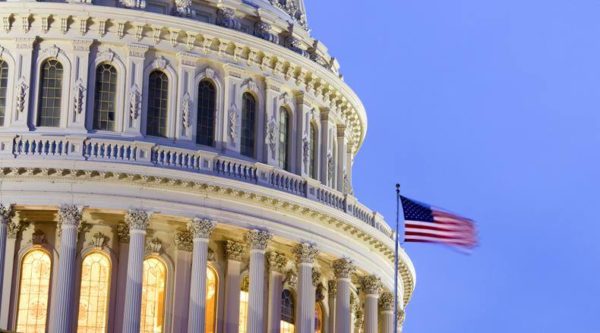
- Details
- By Native News Online Staff
WASHINGTON — Just after midnight on Saturday morning, the House of Representatives passed the Families First Coronavirus Response Act, legislation (H.B. 6201) to provide assistance to combat the coronavirus. The legislation was passed with overwhelming bipartisan support with a vote of 363-40.
The legislation that passed Saturday builds on an $8.3 billion emergency coronavirus spending package enacted into law on March 6.
Three of four American Indians in Congress voted in favor of the Families Frist Coronavirus Response measure: Rep. Tom Cole (R-Ok), Chickasaw; Rep. Deb Haaland (D-N.M.), Pueblo of Laguna; and Rep. Sharice Davids (D-KS), Ho-Chunk. The fourth American Indian in the House, Rep. Markwayne Mullin (R-OK), Cherokee, did not vote on the bill.
The legislation will provide access to free COVID-19 testing, increases federal payments to state Medicaid programs and allocates $1 billion to reimburse testing costs for uninsured patients. The legislation also guarantees two weeks of paid sick leave and up to three months of paid family and medical leave for employees of businesses with fewer than 500 employees.
New Mexico’s Haaland worked hard for an inserted provision into the bill that ensures tribes, tribal organizations, urban Indian health organizations, or health service providers to tribes are included and eligible for emergency funding and programs.
“Families in this country deserve support during a time of crisis, but for too long worker protections have been put on the backburner. Today, we’re passing much needed programs that will ensure our families have what they need to stay healthy and manage the economic impacts of the coronavirus outbreak,” said Haaland.
“After President Donald Trump declared a national emergency and outlined new efforts to combat the coronavirus in the United States, I am grateful the House could come together several hours later to provide reassurance for concerned American families and communities,” Cole said. “With more cases confirmed of COVID-19 every day across the nation and the numerous disruptions to our daily lives, the American people need to know that we will get through the unknowns ahead and that testing will be available and accessible for everyone who needs it. Between the funding already provided by Congress last week, the Administration’s bolstered response efforts and this second installment of relief, it is clear that we are united in protecting our citizens and their livelihoods during this emergency.”
Among other features of the legislation are:
- Supports strong unemployment benefits;
- Expands food assistance for vulnerable children and families;
- Protects frontline health workers;
- Provides additional funding to states for the ongoing economic consequences of the pandemic; and
- Protects home-delivered meals, personal care, and health services for seniors and individuals with disabilities.
The legislation now heads to the Senate for passage before it becomes law and then sent to the president for signature.
More Stories Like This
Native News Weekly (August 25, 2024): D.C. BriefsUS Presidents in Their Own Words Concerning American Indians
Native News Weekly (December 14, 2025): D.C. Briefs
Wounded Knee Massacre Site Protection Bill Passes Congress
Two Murdered on Colville Indian Reservation
Help us defend tribal sovereignty.
At Native News Online, our mission is rooted in telling the stories that strengthen sovereignty and uplift Indigenous voices — not just at year’s end, but every single day.
Because of your generosity last year, we were able to keep our reporters on the ground in tribal communities, at national gatherings and in the halls of Congress — covering the issues that matter most to Indian Country: sovereignty, culture, education, health and economic opportunity.
That support sustained us through a tough year in 2025. Now, as we look to the year ahead, we need your help right now to ensure warrior journalism remains strong — reporting that defends tribal sovereignty, amplifies Native truth, and holds power accountable.
 The stakes couldn't be higher. Your support keeps Native voices heard, Native stories told and Native sovereignty defended.
The stakes couldn't be higher. Your support keeps Native voices heard, Native stories told and Native sovereignty defended.
Stand with Warrior Journalism today.
Levi Rickert (Potawatomi), Editor & Publisher

